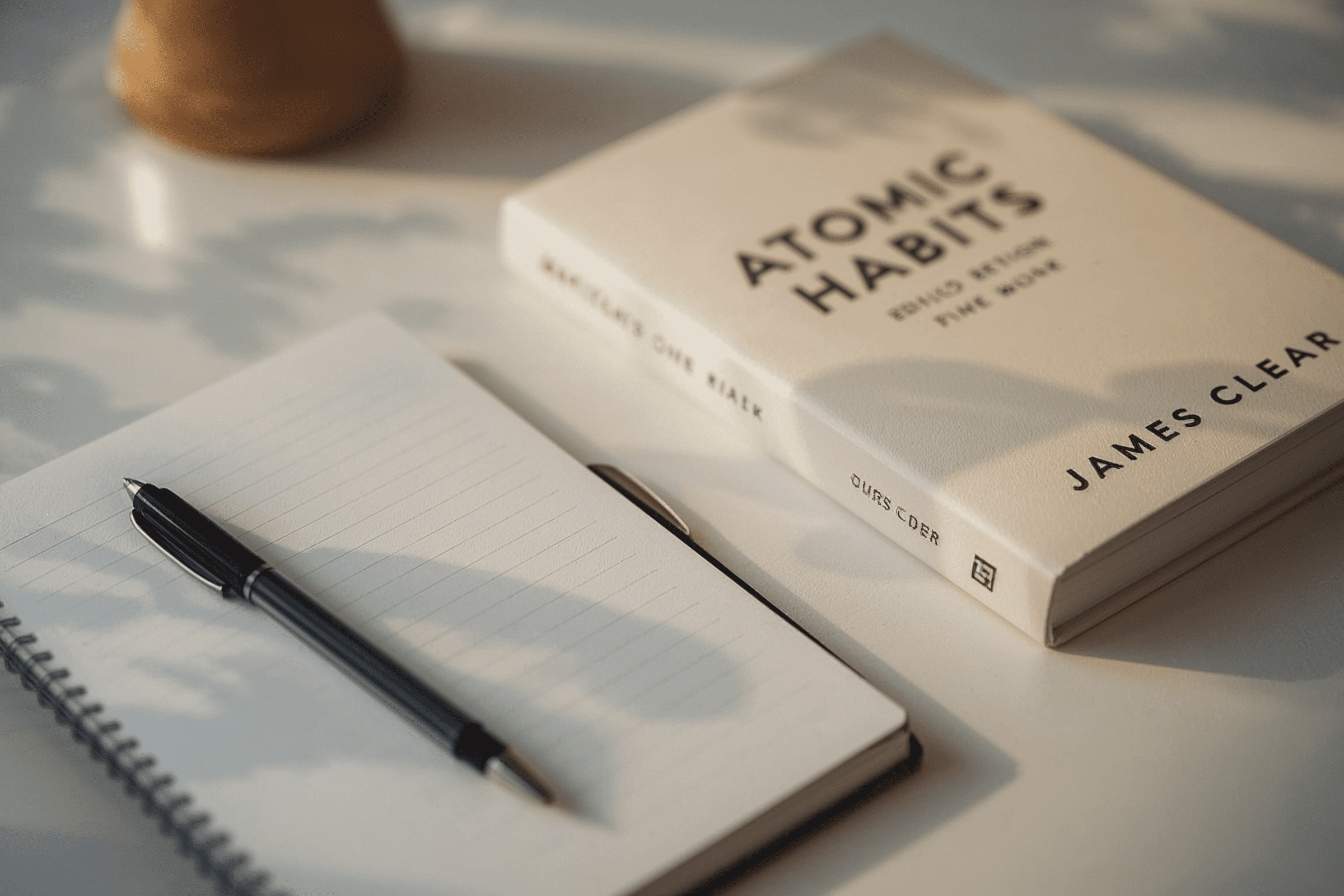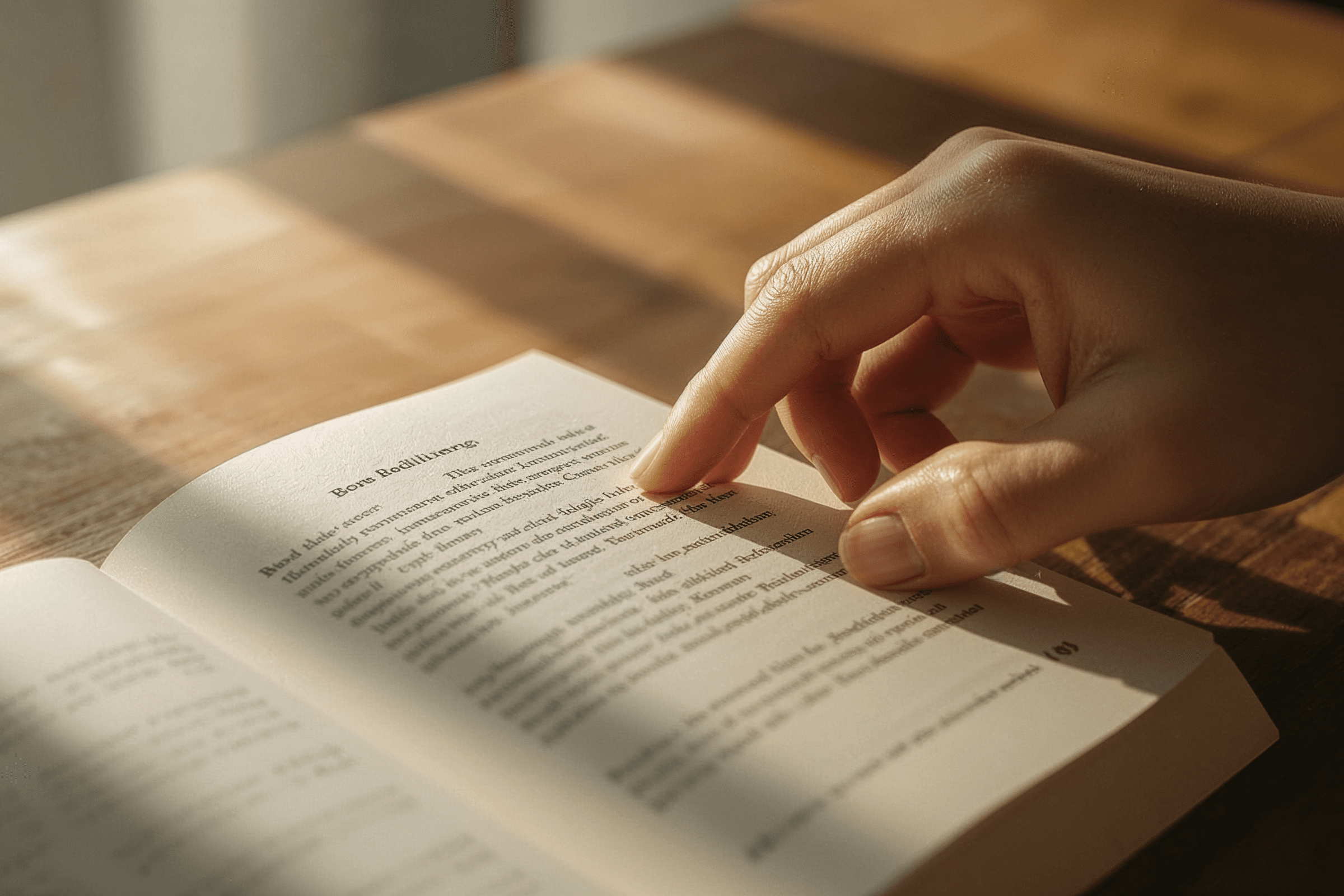Some books entertain you, others inform you — but every once in a while, one flips your worldview upside down. I still remember the first time that happened to me. I wasn’t looking for life advice or a grand revelation — just something to read on a quiet weekend. But a few chapters in, I caught myself seeing my routines, my habits, even my relationships a little differently. That single moment opened the door to a lifelong obsession with books that don’t just pass the time, but change the way you live it.
This post isn’t about my favorite stories or the most beautifully written novels. It’s about the ones that shifted something inside me. The ones that made me pause, take notes, and actually do something differently the next day. Over time, I realized that certain books don’t just tell you what to think — they teach you how to think.
So, here are the five books that truly changed my life — and how each one left an imprint that still guides my everyday choices.

5 books that changed my life
“Atomic Habits” by James Clear – The Power of Tiny Changes
I first picked up Atomic Habits during a period when I felt completely stuck. I had big dreams, long to-do lists, and zero consistency. Every week started with motivation and ended with frustration. I thought I had a willpower problem, but James Clear made me realize I actually had a system problem.
The book breaks down success into something simple and doable: focus on small, repeatable actions. Clear’s idea that habits are “the compound interest of self-improvement” hit me hard. It wasn’t about overhauling my life overnight — it was about stacking small wins until they quietly became who I was.
One of the first habits I tried was a five-minute journaling routine. Just five minutes before bed — writing what went well, what didn’t, and what I was grateful for. It sounded almost too easy, but within weeks, I noticed I was more grounded, more focused, and less reactive. That single micro-habit became the cornerstone for other improvements — waking up earlier, reading more, and actually following through on the plans I made.
Clear writes, “You do not rise to the level of your goals. You fall to the level of your systems.” That line completely reframed how I viewed progress. It’s not about chasing huge goals that burn out your motivation — it’s about building the environment and the habits that make success inevitable.
Takeaway: Focus less on outcomes and more on the daily actions that naturally lead you there. When you design better systems, better results follow.
“The Alchemist” by Paulo Coelho – Listening to Life’s Whispers
The Alchemist found me at a time when I was questioning everything — my direction, my purpose, even the point of chasing big dreams that seemed miles away. I’d heard the title tossed around for years, but I didn’t expect it to hit me as deeply as it did. It’s one of those deceptively simple stories that sneaks up on you and changes how you see your own journey.
Santiago’s quest for his “Personal Legend” — the treasure he believes awaits him in a faraway land — is really a metaphor for what we all go through. He leaves comfort behind, faces failures, meets teachers, and learns that sometimes, the detours are the real destination. What struck me most was how often the signs were there for him — he just had to be brave enough to listen. It reminded me that purpose rarely shows up with a clear roadmap. It reveals itself one uncertain step at a time.
I remember once making a risky career decision that didn’t make sense on paper, but felt right in my gut. Everyone around me said to wait, to be “practical.” I didn’t. And that single leap opened doors I never even knew existed — the kind that only open when you trust your instincts.
Coelho’s line, “When you want something, all the universe conspires in helping you to achieve it,” still gives me chills. It’s not magic — it’s alignment. Once you start moving toward what you truly want, opportunities seem to find you.
Takeaway: Stop waiting for the perfect timing or plan. The right path often unfolds only after you start walking.
“Daring Greatly” by Brené Brown – The Courage to Be Vulnerable
I didn’t realize how much perfectionism was running my life until I read Daring Greatly. On the surface, I thought I was just being “driven” — setting high standards, double-checking everything, staying composed. But underneath, I was terrified of being seen as anything less than capable. Brené Brown’s research on vulnerability hit me like a wake-up call: the harder we try to protect ourselves from failure or embarrassment, the more we disconnect from the things that actually make us human.
Her message is simple but uncomfortable — vulnerability isn’t weakness; it’s courage in action. When she wrote, “Vulnerability is not weakness; it’s our greatest measure of courage,” I had to stop and reread it. It challenged everything I’d been taught about strength.
One of the biggest changes I made after reading it was finally launching a creative project I’d been sitting on for months. I kept holding back, worrying what people might think or whether it would be “good enough.” But Brown’s words reminded me that courage doesn’t mean having no fear — it means showing up with fear and doing it anyway. Once I did, something surprising happened: instead of judgment, I found connection. People related to the honesty, not the polish.
Daring Greatly taught me that authenticity is messy, and that’s exactly what makes it powerful. The moments we open up — about our struggles, doubts, or insecurities — are often the ones that inspire others most.
Takeaway: Perfection might make you impressive, but vulnerability makes you real. And being real is what draws people in.
“Man’s Search for Meaning” by Viktor E. Frankl – Finding Purpose in Suffering
I read Man’s Search for Meaning during a time when everything felt uncertain — the kind of season where you’re just trying to make sense of what’s next. I’d heard it was a heavy book, but what I didn’t expect was how deeply human and hopeful it would feel. Frankl’s account of surviving Nazi concentration camps isn’t just about endurance; it’s about discovering that even in the darkest places, meaning can exist.
The line that stayed with me the most was: “Those who have a ‘why’ to live, can bear almost any ‘how.’” That one sentence reframed how I see challenges. It’s not the suffering itself that destroys us — it’s the belief that the suffering has no purpose. Frankl’s philosophy of logotherapy centers on this: when life strips everything away, our freedom to choose our response is what remains. That realization hit hard.
I remember reading it while dealing with a personal setback that felt endless. But after finishing the book, I started asking myself a different question — not “Why is this happening to me?” but “What can I learn from this?” That subtle shift didn’t erase the pain, but it made it bearable. It gave it shape and direction.
What Frankl teaches is that purpose isn’t found in comfort — it’s forged in struggle. When you connect your pain to something bigger than yourself, it stops being meaningless. It becomes part of your story.
Takeaway: You can’t always control what happens to you, but you can always choose what it means. Purpose doesn’t remove pain — it transforms it.
“Big Magic” by Elizabeth Gilbert – Living a Creative Life Without Fear
I picked up Big Magic during a time when I was completely stuck in my own head. I loved creating — writing, designing, brainstorming ideas — but I had quietly built this wall of self-doubt around it. Every time I wanted to start something new, that little voice would whisper, “Who do you think you are?” Reading Elizabeth Gilbert’s take on creativity was like having someone gently hand me permission to just make things — not for approval, not for perfection, but for the joy of it.
Gilbert doesn’t romanticize creativity. She says fear is part of the process — it’s always going to be in the car, but you don’t have to let it drive. That simple metaphor stuck with me. I stopped waiting to feel ready and started creating while still scared. One of the biggest risks I took after finishing the book was starting a small creative side project I’d been overthinking for months. I hit publish before I could talk myself out of it — and that tiny act of courage reignited my motivation in ways I didn’t expect.
One of my favorite lines from the book is: “You can measure your worth by your dedication to your path, not by your successes or failures.” It’s a reminder that showing up for your craft — whatever it is — matters more than the outcome.
Big Magic taught me that creativity thrives on curiosity, not confidence. You don’t have to be fearless to live creatively; you just have to be willing to begin, even with trembling hands.
Takeaway: Stop waiting to feel brave. Follow your curiosity, make something imperfect, and let joy — not fear — guide the process.

The Common Thread: Growth, Grace, and Grit
Looking back at these five books, I see a clear pattern — real transformation doesn’t come from one big leap or a single moment of inspiration. It comes from staying curious enough to keep learning, vulnerable enough to stay open, and consistent enough to keep showing up. Each of these authors, in their own way, reminded me that growth isn’t linear and that meaning often hides in the small, ordinary moments we tend to overlook.
If one of these titles speaks to you, start there. Don’t overthink it — just pick up the book that feels right and let it meet you where you are. You never know which sentence or idea might shift something inside you.
I’d love to hear from you too — what book has changed your life, or made you see the world a little differently? Share it in the comments below.
And just a small note: if you decide to grab one of these books through my Amazon links, it helps support my writing at no extra cost to you.
Whether you’re trying to rebuild habits, chase a dream, or simply find meaning, one of these books might just be the spark that changes your life next.

